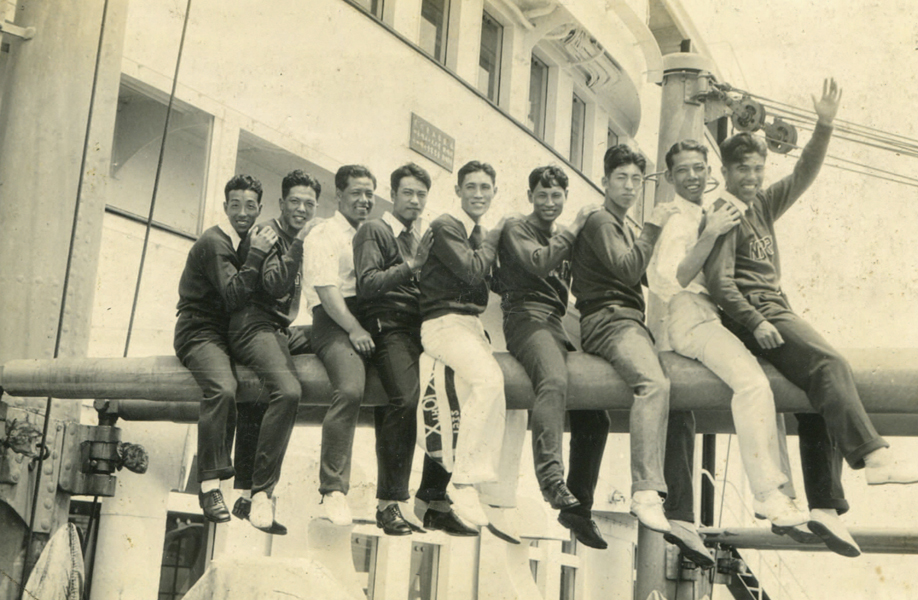Olympian Mikio Oda and Waseda’s track and field athletes
Fri, Aug 21, 2015-
Tags
Waseda University Archives
Akira Takahashi
Although memories of figure skater Yuzuru Hanyu winning the gold medal at the 2014 Sochi Olympics remain fresh in our minds, Waseda has fostered many athletes who went on to compete in the Olympics. One of these athletes is Mikio Oda, the first Japanese to win an Olympic gold medal.
Oda was born in Hiroshima prefecture in 1905. While studying at Waseda University’s School of Commerce, he competed in the 1928 Amsterdam Olympics triple jump competition, where on August 2 he won the gold medal with a remarkable record of 16m 21cm. This medal was the result of Oda’s diligence, and his logical research and practice routines.

A practice memo written by Mikio Oda between 1926 and 1928 (courtesy of Waseda University Archives)
Oda compiled domestic and international literature, magazines, and newspaper articles on long jump competitions in order to improve his abilities. Once he came up with a technique, he would immediately put it into practice. The memo written by Oda and pictured above illustrates this process.

Waseda track and field athletes before the 1932 Los Angeles Olympics. Nanbu is pictured on the far left, Okita the third from left, Oda sixth, and Nishida seventh. (courtesy of Waseda University Archives)
Oda was supported by friends such as Yoshio Okita, Chuhei Nanbu, and Shuhei Nishida from Waseda’s track and field club. Okita, captain of the club, had been a close friend of Oda since their middle school days in Hiroshima. Nanbu competed alongside Oda at the Amsterdam Olympics and won the gold medal for his remarkable performance in the 1932 Los Angeles Olympics triple jump competition. Nishida joined the track and field club where he worked hard under the watchful eye of Oda to improve his competitive abilities. He won two consecutive silver medals in the pole vault competition, first at the 1932 Los Angeles Olympics and then at the 1936 Berlin Olympics. It is likely the bonds between these athletes and their constant desire to help each other improve contributed to their success.
In his later years, Oda said “I was not an incredibly gifted athlete. What made me strong was working twice as hard as everyone else.” Oda’s humility, relentless work ethic, and friends were undoubtedly forms of support for this remarkable Olympic athlete.














